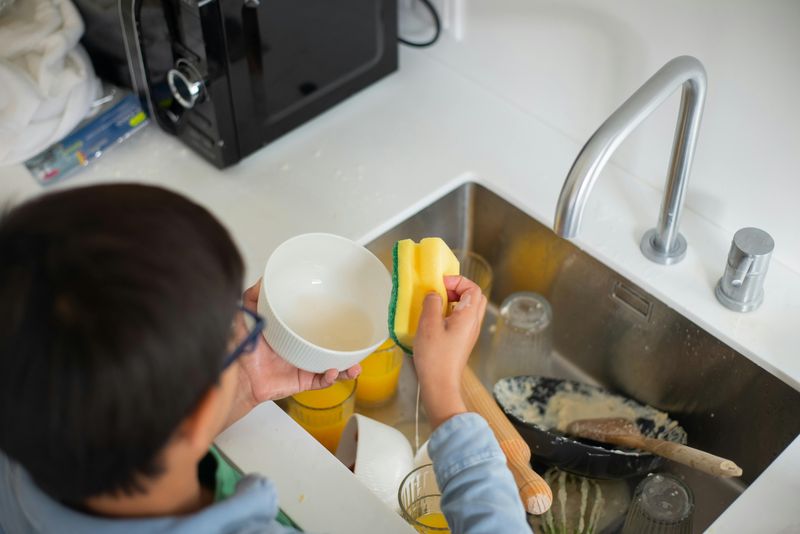10 Signs Your Adult Child Is Just Using You

Navigating the complex dynamics between parents and adult children can sometimes lead to uncomfortable realizations. Whether it’s financial dependency or emotional manipulation, understanding the signs that your adult child may be taking advantage of your goodwill is crucial. The following are ten distinct indicators that might suggest your adult child is using you, each with its own unique narrative and perspective.
1. Constantly asking for money and never paying it back

Money has a way of bringing out people’s true intentions. If your adult child frequently asks for financial assistance with promises of repayment that never materialize, it might be a sign. Their promises may start to sound like a broken record, leaving you questioning if they’ll ever follow through.
In some cases, the debt seems to accumulate, and repayment becomes a distant dream. This pattern can indicate a lack of responsibility and respect for your financial well-being. The repeated requests, without the intention to repay, may reflect a deeper issue of dependency or manipulation.
2. Refusing to work or contribute financially while relying on parents

An adult child’s refusal to work can be a heavy burden. If they choose leisure over labor while you foot the bills, a problem might be at hand. This scenario can create tension, as their lack of contribution may feel like a lack of appreciation or effort.
Such behavior can drain resources and strain relationships. Parents may feel the weight of the world on their shoulders as they try to provide for someone who doesn’t reciprocate. It’s essential to recognize this dynamic before it becomes an entrenched pattern.
3. Treating the family home like a hotel with no responsibilities

When home becomes just a pit stop, something’s amiss. An adult child who sees the family home as a hotel may lack accountability. They breeze in and out, indulging in the comforts of home without pitching in.
This behavior leaves parents juggling household responsibilities alone. The sense of entitlement can grow, leading to resentment. By not contributing, the adult child may signal a lack of respect for the shared living space and the efforts that maintain it.
4. Only calling or visiting when they need something

Calls that come with a catch can become predictable. If your adult child only reaches out when they require assistance, it might be time to reassess the relationship. The pattern of conditional contact can erode trust and emotional connection.
Such interactions may leave a parent feeling like a resource rather than a loved one. This transactional approach to relationships can be emotionally draining, leading to a sense of being used rather than valued.
5. Guilt-tripping parents into giving them money or favors

If your adult child uses guilt to get what they want—whether it’s money, time, or favors—they’re not just asking for help, they’re manipulating your emotions. Parental love should never be a bargaining chip.
Such behavior can create a cycle of dependency and guilt. Parents may find themselves constantly caving in to avoid feeling like they’ve let their child down, even when the requests seem unreasonable.
6. Ignoring household chores and leaving everything for parents to handle

Household harmony relies on shared responsibilities. When an adult child ignores chores, it can disrupt this balance. Their neglect can make parents feel like they’re running a one-sided operation.
This lack of participation can breed resentment. Cleaning up after someone else, especially a capable adult, can wear thin. It reflects a disregard for the effort involved in maintaining a home and can strain familial bonds.
7. Becoming defensive or angry when parents set boundaries

Setting boundaries is an act of love. However, if your adult child reacts defensively or with anger, it might signal an underlying issue. Their response could indicate resistance to change or an unwillingness to adapt.
This defensiveness can escalate tensions, making open communication difficult. It may serve as a barrier to resolving underlying problems, ultimately hindering growth and understanding.
8. Showing little concern for parents’ struggles, health, or finances

If your adult child consistently ignores your needs while expecting your support, that’s not just inconsiderate—it’s a red flag. A relationship without empathy becomes one-sided, draining, and ultimately unsustainable.
This emotional distance can create a chasm, making parents feel isolated in their own home. Recognizing this lack of empathy is crucial for maintaining a balanced and supportive family environment.
9. Taking advantage of parents’ credit, car, or other assets

Trust is the cornerstone of any relationship. When an adult child takes advantage of your credit, car, or other assets, it can break that trust. Their actions may reveal an exploitative attitude that doesn’t consider the consequences.
Such behavior can put a strain on financial resources and lead to distrust. It may also signify a lack of responsibility and foresight, potentially leading to long-term financial repercussions.
10. Acting entitled, as though ongoing support is owed to them

When your adult child expects your support without thanks or accountability, that’s not love—it’s entitlement. One-sided giving breeds resentment, and over time, it fractures the foundation of trust and respect in the relationship.
This attitude can lead parents to feel undervalued and taken for granted. Recognizing entitlement is important for setting healthy boundaries and fostering mutual respect.

Comments
Loading…